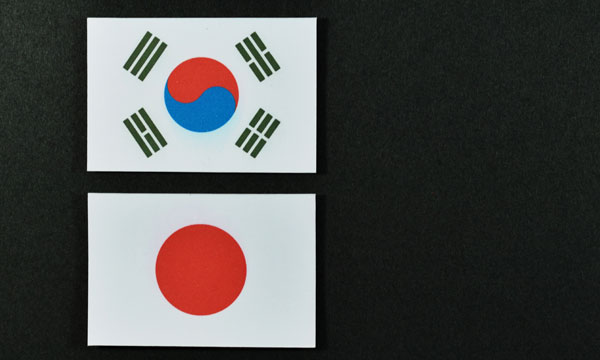Compensation plan for Korean forced labor victims receives mixed reviews

[The Korean flag and the Japanese flag. Photo Credit to Pixaby]
The South Korean government's recent agreement with the Japanese government on compensation for victims of forced labor during the Japanese colonial era has received mixed review domestically.
On March 6th, 2023, South Korea announced a decision to compensate Korean victims forced to work for Japanese companies during World War II with its own companies.
This announcement sparked national and international debates about how Korea should manage its foreign relations with Japan.
The plan designates for the 1965 Korea-Japan Treaty beneficiaries to voluntarily recompense four billion won to Korean forced labor victims.
This includes sixteen Korean companies, such as POSCO and Korea Electric Power Corporation.
Additionally, it encourages Japanese firms that exploited Koreans during the Japanese colonial period to participate in a joint scholarship fund run by Korea-Japan Finance Union.
Reflecting on its moves, the Korean Ministry of Foreign Affairs hoped to strengthen diplomatic ties with Japan.
"In every area from security to the economy, we have to work with Japan closely, given the global political landscape and a series of complex crises around it. It is in our best interest to start mending the frayed ties with Japan. This is our last opportunity to see that happen," Park noted in an official statement about the plan.
Japan welcomed this decision immediately upon its announcement.
"This will be an opportunity to move forward, strengthening Japan-Korea relations," Japanese Prime Minister Fumio Kishida noted.
He further emphasized that Korea is a neighboring partner for Japanese collaboration, alluding to the three-way militaristic alliance between South Korea, Japan, and the United States.
Likewise, this decision has been received with applause from the United States.
United States President Joe Biden commented that Korea's efforts mark "a groundbreaking new chapter of cooperation and partnership between two of the United States' closest allies" and will forge a shared future that is "safer, more secure, and more prosperous."
He further alluded to the possibility that the relationship improvement between Korea and Japan may advance a vision for a free and open Indo-Pacific Region.
"As we move ahead, I look forward to strengthening and enhancing the trilateral ties between the Republic of Korea, Japan, and the United States," President Biden said in an official statement.
Despite the international appraisal South Korea's decision receives, many within the country heavily criticize the decision.
"Is President Yoon Suk Yeol Korean or Japanese? Does he live for Japan or for us Koreans?" asked Yang Geum-deok, a Japanese forced labor victim who was forced to work for Mitsubishi as a teenage girl.
She condemned the settlement plan as a "beggarly offer" and refused to accept forced labor compensation payment.
"I cannot wrap my head around it. In my 95 years of life, I have never faced this sort of logic," she said.
Just as it faces criticism from forced labor victims, the compensation plan also encounters other practical concerns.
Prime Minister Kishida currently endures declining support from his representative country, Japan.
By accepting Korea's plans for compensation, he and his political party may further incur a loss in support.
As the plan may reflect unfavorably for Kishida in his party's April local elections, he will have to carefully strike a balance between improving foreign relations and winning votes for his political party.
Likewise, President Yoon faces political conflicts with the National Assembly, dominated by opposition party politicians that have antagonized his efforts to strengthen ties with Japan since the beginning of his presidency.

- Hoseok (Chris) Ahn / Grade 11
- Asia Pacific International School

![THE HERALD STUDENT REPORTERS [US]](/assets/images/logo_student_us.png)
![THE HERALD STUDENT REPORTERS [Canada]](/assets/images/logo_student_ca.png)
